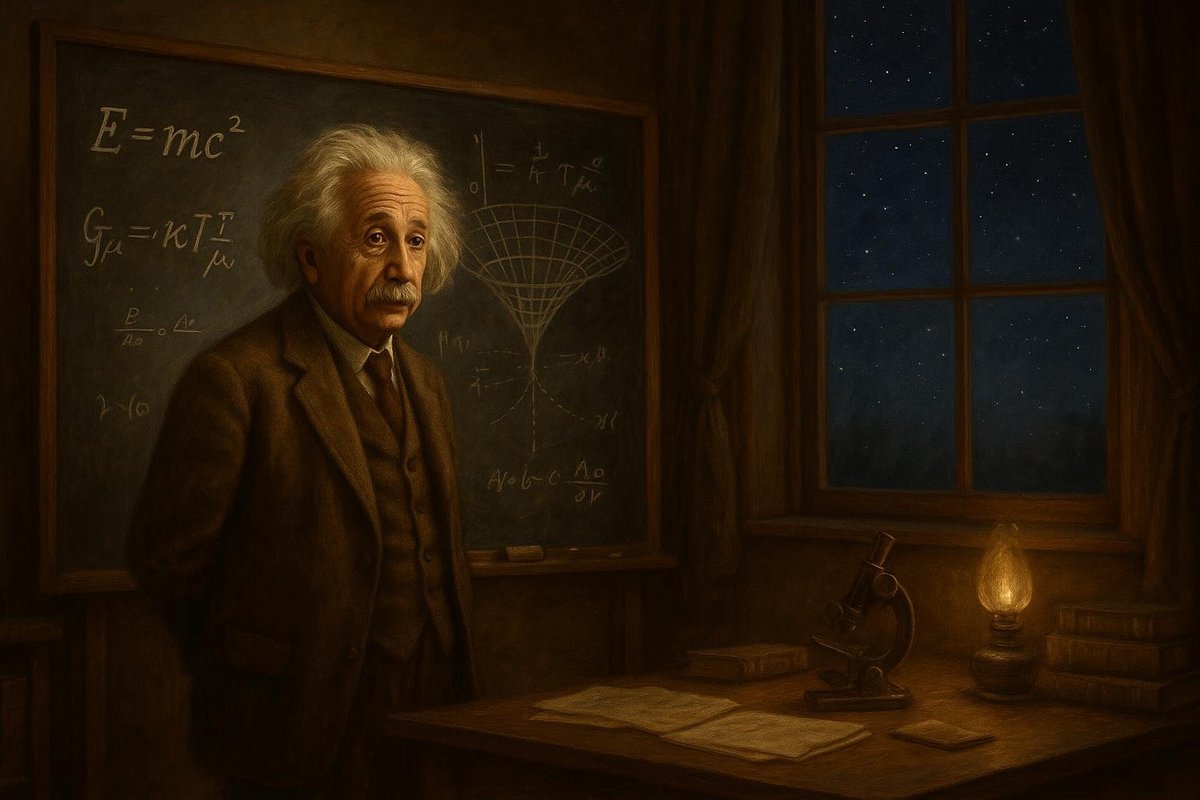
It is said that the universe is a tapestry woven with threads of mystery and discovery. One man, Albert Einstein, dared to pull on those threads, unraveling a reality that forever changed how we perceive time and space. His Theory of Relativity didn’t just challenge scientific norms; it invited humanity to question its very existence within the cosmic dance.
The Birth of Relativity: A New Vision of Reality
Interestingly, many people believe that before Einstein, time ticked uniformly across the universe, much like the hands of a clock. However, Einstein introduced a radical idea: time and space are intertwined.
- Einstein’s theories suggested that time is not absolute, but relative.
- Space can warp, and time can bend, influenced by the gravity of massive objects.
Consider how the simple act of moving at high speeds affects time itself, as experienced by astronauts aboard the International Space Station. They age ever so slightly slower than those of us on Earth. In essence, Einstein proposed that reality is much more fluid than the rigid Newtonian framework that preceded it. As time goes on, we see his theories echoed in the technologies we rely on daily, such as GPS, which accounts for time dilation effects to maintain accuracy.
Challenging Our Cosmic Place
Of course, the idea that time and space are flexible invites a deeper reflection on our place in the universe. How do we fit into this grand, ever-shifting cosmic stage?
- Einstein’s work suggests that the universe is a dynamic tapestry, shifting with the movements of celestial bodies.
- Our understanding of time and space is fundamentally linked to our perception of reality.
As we explore the universe through telescopes and probes, we begin to see ourselves not as masters of our domain, but as participants in a grand cosmic play. The stars and galaxies are not just distant observers but intricately connected nodes in a web that includes us too. The challenge, and the beauty, lies in understanding our role in this interconnected cosmos.
The Philosophical Implications: Redefining Truth
Many people ponder: If time and space are not absolute, what does this mean for our understanding of truth? The Theory of Relativity elevates this inquiry beyond physics, nudging us into the realm of philosophy.
- Truth becomes a more fluid and subjective concept in a relativistic universe.
- Our perceptions are colored by our position and movement in space-time.
No wonder philosophers and scientists alike have been drawn to the implications of Einstein’s work. It invites us to reconsider how we define reality itself. The notion that truth may be relative challenges our deepest convictions and encourages a humility that is vital for both personal and scientific growth.
The Legacy of Einstein’s Vision
As time marches on, Einstein’s legacy continues to influence our understanding of the universe. His theories are not just relics of scientific history but active participants in ongoing discoveries.
- Modern physics, from quantum mechanics to cosmology, still dances around the axes of relativity.
- Einstein’s ideas serve as a foundation for exploring potential new dimensions of reality.
In the ever-expanding universe of knowledge, his vision remains a guiding star. Our understanding of black holes, gravitational waves, and even the potential for time travel owes much to the groundwork he laid. The future teems with promise, and perhaps, just as Einstein once revolutionized our view of reality, the next great thinker will redefine the truths we hold dear today.
In conclusion, Einstein’s Theory of Relativity has not only reshaped scientific thought but also challenged humanity to reconceptualize its understanding of truth, reality, and our place within the universe. It calls us to question, explore, and accept that the universe is a mysterious place, full of wonder.
Fuel Someone Else’s Curiosity
If you found this exploration of Einstein’s revolutionary ideas fascinating, why not share it? Ignite curiosity in a friend or a loved one by sharing this article. After all, the universe is vast, and there is always more to discover when we look beyond the familiar.

Leave a Reply